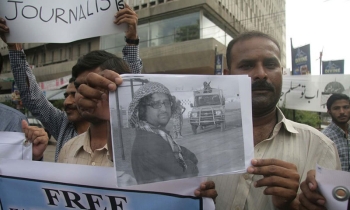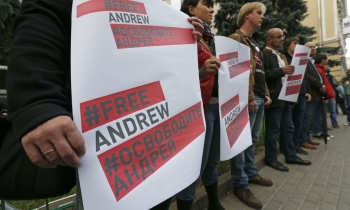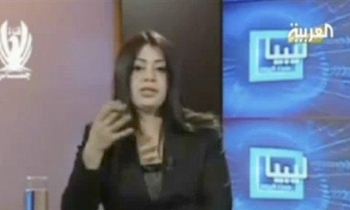Freedom of expression in Yemen remains in peril. there have been a series of blows to press freedom in the past few days in this peninsular country.
Authorities banned distribution of the monthly Abwab and the weekly Al-Sabah on March 14. The website www.aleshteraki.net, the mouthpiece of the main opposition party, has been inaccessible since March 12. At the same time, the daily Al-Sharea, its editor, Nayef Hassan, and freelance journalist Abdulkarim Al-Khaiwani are being prosecuted for disseminating reports “liable to undermine army morale.â€
“The political tension should not be used as grounds for restricting press freedom,†says Paris-based Reporters sans Frontières (RSF). “The government should allow dissident voices to be heard and should ensure respect for diversity of views. It is essential that these decisions are rescinded at once and that Al-Sharea’s journalists are guaranteed due process.â€
The information ministry banned distribution of Al-Sabah for its alleged failure to respect legal procedures when it was created. It is very critical of the government. The first issue of Abwab, which was printed in Dubai, United Arab Emirates, was seized on arrival at Sana’a airport.
The magazine’s editor said the cover, which showed President Ali Abdallah Al-Saleh, was deemed to be disrespectful to the president. The authorities have not explained why access to the website of the opposition Yemeni Socialist Party, www.aleshteraki.net, has been blocked.
The correspondents of the pan-Arab satellite TV stations Al-Jazeera and Al-Arabiya have been subject to harassment and intimidation by the police since July 2007. Several journalists such as Hassan and Khaiwani are being prosecuted by military courts because of reports deemed “liable to undermine army morale,†for which they face a possible death penalty.
An armed attack was carried out on February 12 on the office of the independent daily Al-Ayyam and the home of the editor and his family, which share the same compound in Sana’a. The attack was carried out by a dozen gunmen who had been sent to evict its occupants. The newspaper’s security guard fired back, killing one of them and wounding two others. Editor Hisham Bashraheel says he received many threatening phone calls from people claiming to own the land where the newspaper has had its office for the past 30 years.
Created in 1958, Al-Ayyam has no political affiliation and is one of Yemen’s leading dailies. Despite having an editorial office in Sana’a, its headquarters is in Aden, 358 km south of the capital, and it acts as a mouthpiece of the inhabitants of the southern provinces. In recent months it has extensively covered the social unrest in the country’s poorest regions.
ARTICLE 19's report, 'Yemen: Freedom of Expression in Peril', looks at the deteriorating free expression situation in Yemen over the past few years, especially after 9/11, when the authorities linked arms with the U.S. in their war on terror and arrested suspected members of al Qaeda—and the journalists who covered the crackdown. Despite the ebb in the arrests, authorities continue to prosecute, imprison and even physically assault journalists.
Free expression is further at risk by a "weak and corrupt judiciary that fails to implement constitutional guarantees and redress the wrongs suffered by journalists." ARTICLE 19 points to the recent prosecutions of editors before the Special Criminal Court on Terrorism for terrorism-related charges where they could face the death penalty.
The government's restrictions of free expression are not limited to the media; women are often attacked in gender-based slur campaigns, says the report, released earlier this year. ARTICLE 19 recommends that Yemen adopt anti-discriminatory legislation to help "empower women to exercise their right of freedom of expression."
Local press freedom group Women Journalists Without Chains (WJWC) found in its annual press freedom report on Yemen that the 131 violations against the press last year was almost double the number in 2006. WJWC says the increase can be explained by the authorities' new zeal for preventing information access and circulation.
Journalists who dared to cover protests and criticism of the authorities were targeted, even more so than the protesters themselves. "It's obvious that the state's major concern was to blackout and ban circulation of information and events coverage rather than just trying this press facility or that reporter," says WJWC. It says a freedom of information law that insures "suitable and secure channels" for accessing info and possessing press facilities is urgently needed.









